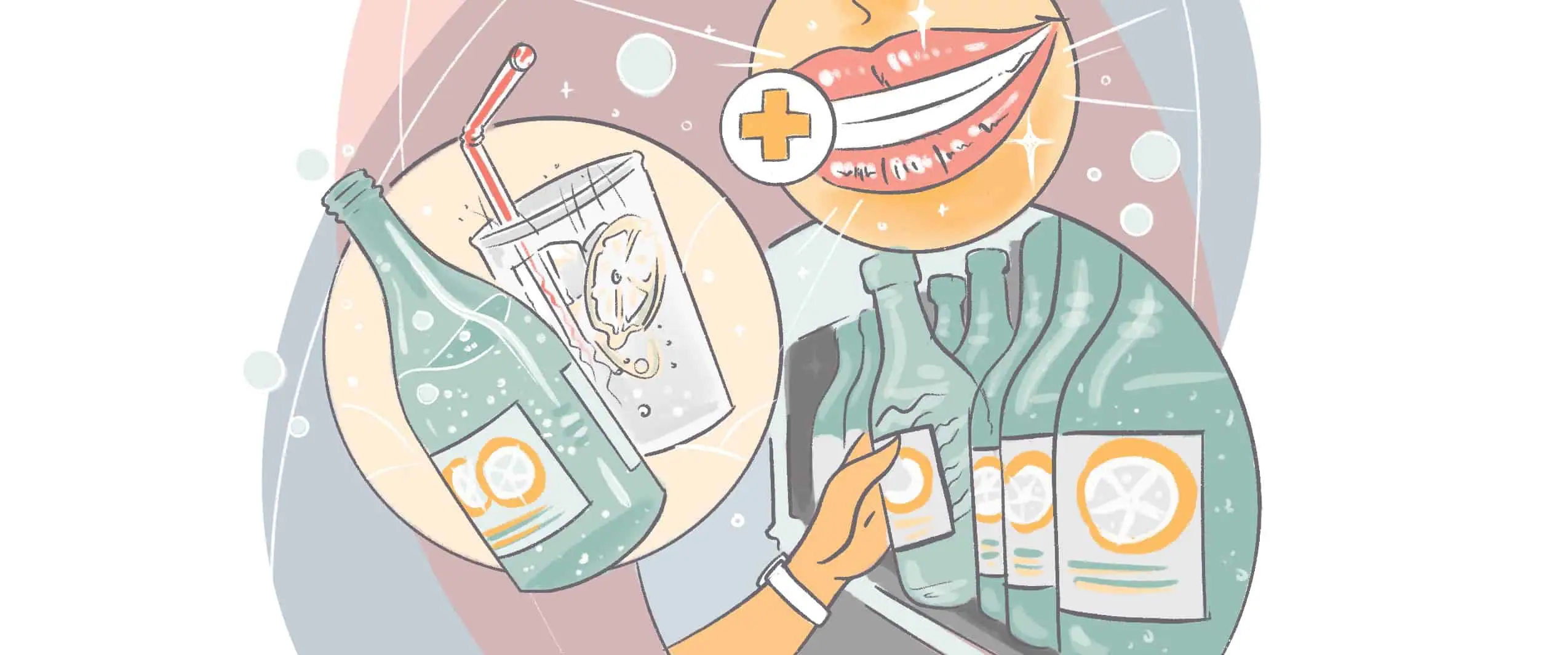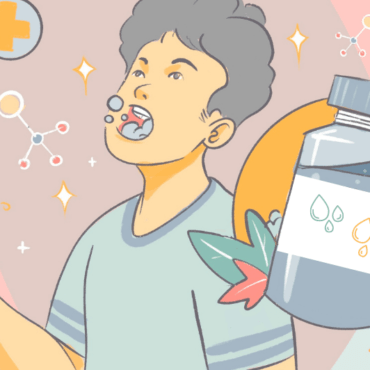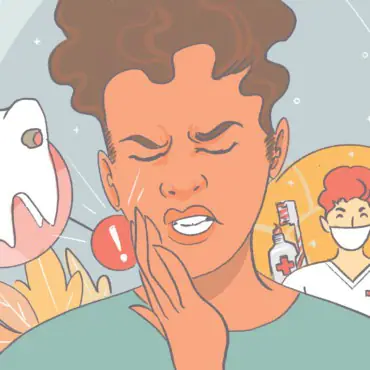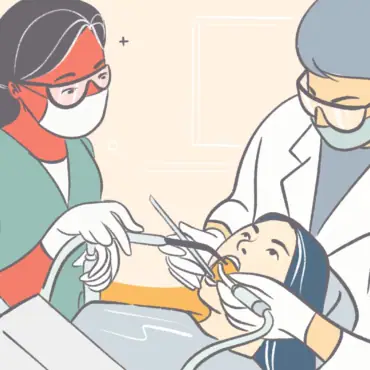DISCLAIMER: Mountain Dew mouth is a symptom of a larger socio-economic issue that has disproportionately affects populations in the Appalachian region of the United States.
Access to affordable dental care and education on the effects of soda consumption are ongoing issues in this region. This article seeks to not only educate patients on the effects of drinking high-sugar drinks, but also bring light to the socio economic struggles many families face in these regions.
Soda has damaging effects on your oral health due to its high sugar content. Mountain Dew, however, has gained notoriety in the dental community as a particularly problematic soda for tooth decay.
What is Mountain Dew mouth?
Mountain Dew mouth is a term used to describe the excessive tooth decay and oral health problems associated with drinking high-sugar sodas.
The sugars and acids in soda drinks have a heyday with your teeth, accelerating tooth decay and gum disease. Without proper dental care (and perhaps cutting back on your soda consumption) they’ll leave a wasteland in their wake that causes people to hide their smiles.
For additional resources on Mountain Dew mouth, you can refer to these publications:
- Center for Public Health Law Research
- Healthline (medically reviewed)
- Stanford Medicine
What causes Mountain Dew mouth?
Most people are aware that sugary sodas are terrible for your teeth. But why is Mountain Dew singled out? What causes the condition and why is Mountain Dew so dastardly?
Carbonated and sugary drinks are horrible for your teeth. The sugars provide fuel for the bad bacteria in your mouth to proliferate. These bacteria are what cause and accelerate tooth decay and periodontal disease. Sodas are also usually acidic, which can erode your tooth enamel.
Tooth enamel is the hardest substance in the human body and drinking a few sodas here and there won’t harm it. However, a constant stream of acids and sugars will really do a number on your pearly whites.
Due for a checkup?
Find a top rated dentist near you that takes your insurance.
In fact, this small study determined that cola drinks dissolve tooth enamel at a rate 55-65 times greater than that of water! Non-cola soda drinks, of which Mountain Dew is one, dissolve the enamel even faster – doing so at a rate of 90-180 times more.
In sum, when you’re wondering about the culprit behind Mtn Dew Mouth, look no further than too much sugary soda.
Why is Mountain Dew worse than other sodas?
For starters, the Dew has more sugar content. It contains 11 teaspoons of sugar in a 12-ounce soda can compared to 9.75 teaspoons in a 12-ounce serving of Coke. To make matters worse, Mountain Dew is a citrus soda, which means it contains more acid than other types of soft drinks.
Both components by themselves pose a significant danger to your teeth. Mixing them together takes things to a whole new level.
How common is Mountain Dew mouth?
It’s difficult to know exactly how common Mountain Dew mouth is since the root cause of tooth decay is not always known.
The big reason the name Mountain Dew ended up in the nickname for dental problems is linked to the culture in the Appalachian Mountains. The people in this area of the country suffer from some of the worst dental health in the nation. For example, when comparing children in Ohio to children in Appalachian Ohio, those in the mountain communities suffer from tooth decay at a rate of 59% higher!
Mountain Dew is a highly popular beverage in the entire strip of the Appalachian Mountains, which runs from the southern part of New York state down to Alabama. It’s gotten so bad that policymakers are looking for ways to limit people’s consumption of soft drinks.
Give $50, get $50.
Refer someone to book a dentist with Opencare and you’ll both get $50.
This includes ideas like putting a tax on the drinks as well as making them ineligible for purchase with food stamps.
Under the current guidelines, SNAP food stamp funds can be used to purchase all kinds of soda of any size. Taxpayers are spending billions of dollars on soft drinks through this program. In some states like Tennessee and Florida, lawmakers have proposed bills to limit using government benefits to purchase these types of drinks.
Other factors affecting dental health in the Appalachians
The amount of soda that people drink is certainly part of the equation. However, the blame for the area’s dental woes doesn’t lie solely on a can of Mountain Dew.
It also lies with poor dental education and dental care accessibility. There are fewer dentists in Appalachia. And many people living in rural communities are 10 miles or more away from dental care.
You also have to consider one of the reasons that drinking soda is so much more common in the area – polluted drinking water.
About ⅔ of the coal in the United States is produced in the Appalachian region. Plus, it’s a major manufacturing center, producing steel and many other products. All this has negatively affected the drinking water in the area and people are concerned about drinking the tap water in their homes.
On top of that, Mountain Dew and other soft drinks are cheaper than milk and other healthier drinks that people could be choosing. For an area with many poor communities and limited access to clean water, it becomes an obvious choice to pick the cheapest drinks available.
How can I prevent Mountain Dew mouth?
So, does drinking a can of Mountain Dew on occasion mean you’re going to end up with rotting teeth? Not necessarily. Drinking one can of soda a day is not generally enough to damage your teeth. This is especially true if you are practicing good oral hygiene, such as brushing and flossing your teeth daily and visiting your dentist regularly.
Due for a checkup?
Find a top rated dentist near you that takes your insurance.
Plus, as we’ve seen, there is more than one factor in the equation that causes Mountain Dew mouth.
You can also be proactive, caring for your dental health while still enjoying your favorite soft drink. Here are some great tips to help prevent this dental disaster.
Drink less soda
This applies if you drink a lot of soda, particularly if you tend to drink it slowly all day. This exposes your teeth to a constant stream of acid and sugar, allowing little time for your teeth to recover and lots of time for damage to occur.
Try to cut back to one serving a day for starters if you drink more than this. Ideally, you should cut it out of your diet and replace it with water.
Brush your teeth…at the right time
You might think that brushing your teeth immediately after consuming a refreshing glass of Mountain Dew would be the ideal way to protect your teeth. However, because the acid weakens your tooth enamel, brushing too soon after exposure will only further damage your teeth. It’s still a good idea to brush your teeth, but wait to do so for at least an hour.
Drink water
To limit the effects of the soda, drink a little water after drinking Mountain Dew. Swish it around in your mouth a little to help wash away any sugar and acids clinging to your teeth. It’s not a perfect solution but will go a long way toward keeping your teeth healthy and strong.
See a dentist regularly
Dental professionals recommend that you attend a dentist appointment twice a year, and most insurance will cover two visits at 100%.
Due for a checkup?
Find a top rated dentist near you that takes your insurance.
During your visit, your dental hygienist or dentist will perform a professional cleaning. This removes any stubborn plaque or tartar that is clinging to your teeth and providing a haven for damaging bacteria. They will also evaluate the health of your teeth and offer recommendations for your best oral health. If you are drinking too much soda, rest assured they will know and will warn you about the repercussions. Once lost, tooth enamel doesn’t grow back and can’t be restored.
Wondering where to find a good dentist near you? We can help! We specialize in matching you with dental professionals in your area that will be a good fit for you. Take our quiz so we can understand what’s important to you about a healthcare professional and we’ll offer you our top recommendations.








